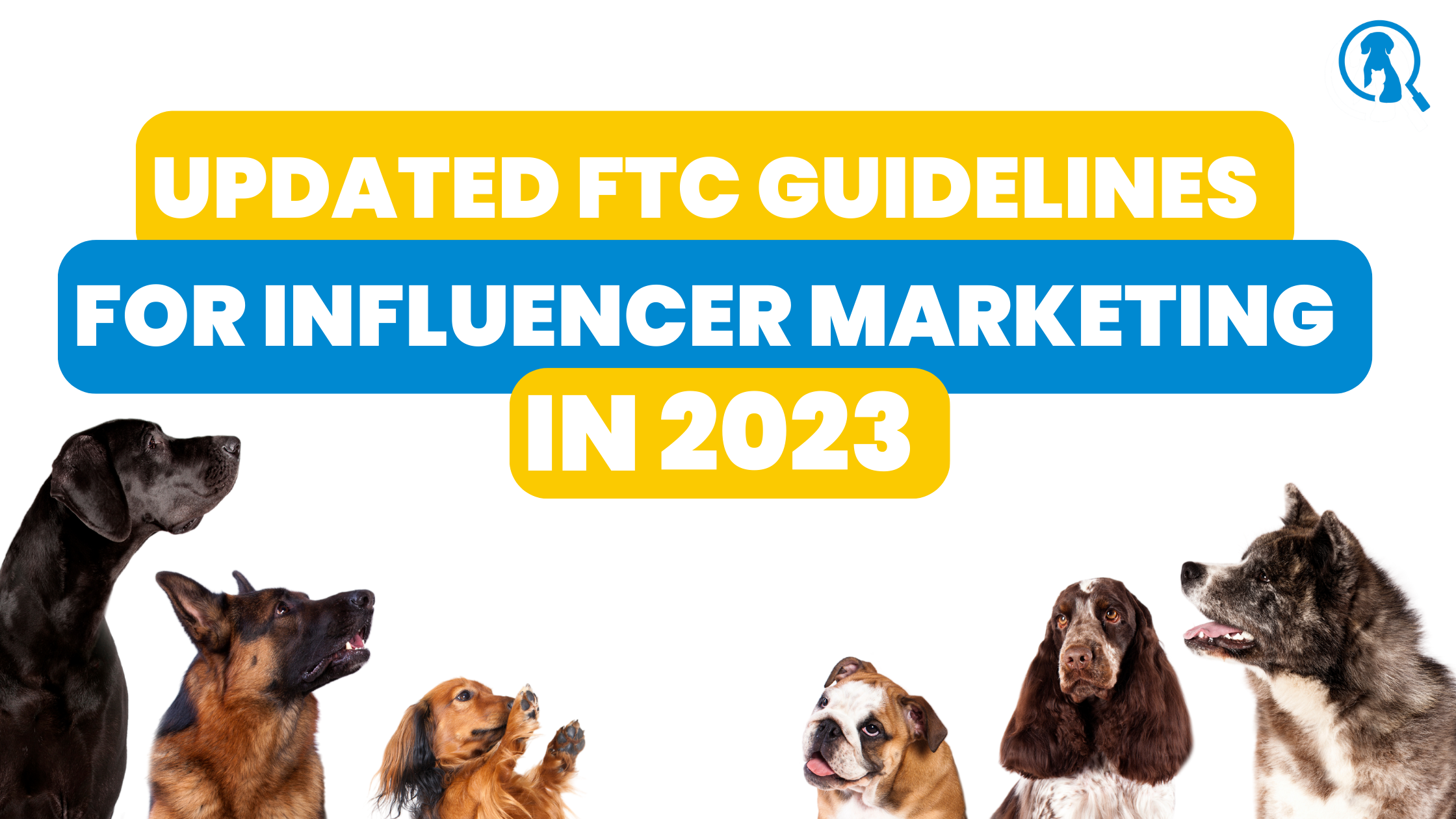Tag Post : Brands & Agencies, Animal Talent
Share This :

In the ever-evolving landscape of digital marketing, influencer marketing has become a dominant force in connecting brands with their target audiences. However, as the influencer marketing industry continues to grow, so does the need for transparency and accountability. In 2023, the Federal Trade Commission (FTC) has introduced updated guidelines to ensure fair practices and maintain the trust between influencers, brands, and consumers. In this blog post, we will delve into the key aspects of the new FTC guidelines and explore how brands and influencers can adapt their strategies to remain compliant.

The cornerstone of the updated FTC guidelines revolves around disclosure. Influencers are now required to provide clear and conspicuous disclosures when promoting a brand or product. A simple hashtag such as #ad, #sponsored, or #paidpartnership is no longer sufficient. Disclosures must be placed in a location where users will easily notice them, without the need for further actions, such as clicking on a “more” button. Moreover, disclosures should be easily understandable and written in a way that ensures consumers comprehend the influencer’s relationship with the brand.
The FTC now emphasizes the importance of consistent disclosure for long-term partnerships and repeat endorsements. When influencers maintain an ongoing relationship with a brand or frequently promote its products, each post must still contain a clear disclosure. This prevents any ambiguity and ensures consumers are always aware of the influencer’s connection to the brand.
Affiliate marketing is a popular form of influencer marketing where influencers earn a commission on sales generated through their unique referral links. Under the new guidelines, influencers must clearly disclose their participation in affiliate programs, even if the compensation is based on a commission structure. The disclosure should be visible before the link and be in a format that is easily understood by the average consumer.
In the context of social media platforms, tagging brands or using filters provided by brands can be interpreted as endorsements. As such, the FTC requires influencers to disclose their relationship with the brand whenever they use such features. Simply tagging a brand in a post or using a brand’s sponsored filter necessitates the use of appropriate disclosure hashtags.
The FTC guidelines also extend to brands and agencies collaborating with influencers. It is the responsibility of the brand to ensure that influencers are aware of their disclosure obligations. Brands and agencies should provide clear guidelines to influencers about the necessary disclosures and monitor compliance to avoid potential penalties.
Influencer marketing remains a powerful tool for brands to reach their target audiences authentically. However, to maintain the trust of consumers and foster a transparent digital ecosystem, adherence to the updated FTC guidelines is essential.
Influencers and brands alike must embrace these changes and prioritize honest and clear disclosures in their influencer marketing campaigns. By doing so, we can continue to elevate the influencer marketing industry and create a more trustworthy and engaging experience for consumers in 2023 and beyond.
For the official FTC guidelines on influencer marketing, visit the FTC website: FTC Endorsement Guides: What People Are Asking.
Tag Post : Brands & Agencies, Animal Talent
Schedule a FREE discovery call where we go over your brand or production companies wants and needs for any upcoming campaign or production job.